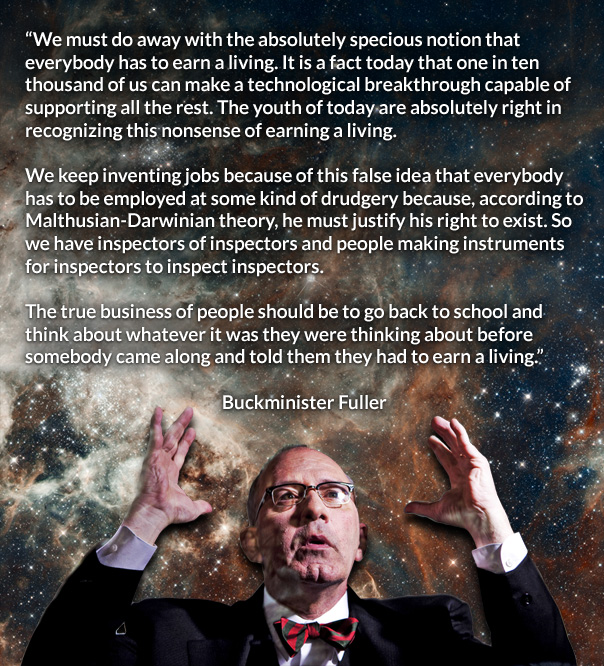Is Work Necessary?
I saw this bouncing around Facebook, and I would like to endorse the underlying philosophy:
For those of you still using text-based browsers (hey, remember Lynx?), here we have Buckminster Fuller making a point about work and responsibility in a high-tech society. Namely: maybe people don’t have to work. Maybe, if machines become really good at producing the basic necessities of life, rather than bemoaning a loss of jobs we should celebrate our liberation from the toil of labor.
As a practical matter, I recognize that this might be hopelessly utopian. It amounts to saying that we should have fairly high taxes, and redistribute most of the money as a minimal income to every person. Nothing wrong with working and earning additional money, but everyone would get their personal share no matter what, and in principle that might be enough to live on. Maybe John Rawls was pointing toward something like that, but the social will is nowhere near making it happen. I can even imagine a utilitarian argument against it, based on the supposition that letting people learn and loaf and enjoy themselves rather than working for a living would lead to less innovation and competition, which in turn would make the world a less enjoyable place. I’m not sure if that’s right, but it’s at least non-obvious that work should be gradually phased out.
But nevertheless the spirit is admirable, and that’s what I want to endorse. There’s nothing morally wrong with the idea that people should spend their time in non-productive pursuits rather than working to earn extra income. It’s not “socialism,” since we’re not changing the free market or the ownership of the means of production. It would just be nice to live in a world where people did challenging things because they wanted to, not because they were forced to in order to survive. Maybe someday.
Is Work Necessary? Read More »




